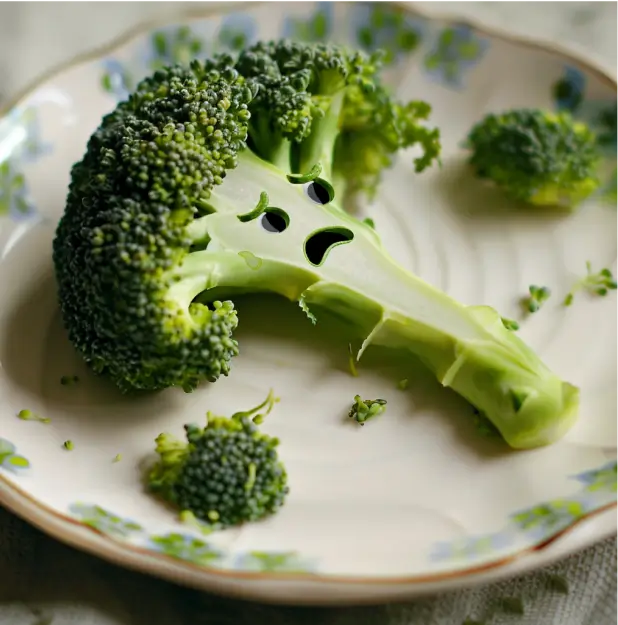
Constipation and diarrhea: what is the connection?

We all experience constipation and diarrhea from time to time. That’s a fact, even if social conventions mean tummy troubles might not be in the top tier of conversation topics when we hang out with our friends. While bowel movements tend to be something we keep private in most cases, our own personal Dirty Little Secret, they play an integral role in maintaining healthy, full lives.
Constipation and diarrhea may be at opposite ends of the bowel movement spectrum. But is there a connection between the two?
In this article we discuss the definitions of both constipation and diarrhea, the possible associations between the two, and some suggestions on how to manage them
Constipation
Constipation can leave you feeling very bunged up, causing severe levels of discomfort that you might be embarrassed to talk about. But there's nothing shameful about it. It’s estimated that 15% of the global population experiences constipation, and the medical community is always searching for new ways to help you manage it.1
Normal pooping patterns are challenging to define. The frequency of bowel movements in most people ranges from one bowel movement every three days to three bowel movements per day 2, which is a pretty wide range! As a general rule, if you go less than three times per week, you could be constipated, but bowel movements vary widely between individuals, as well as the subjective perception of what constitutes “normal”.
Symptoms of constipation include abdominal pain, bloating, flatulence, nausea, and even headaches and fatigue.2 Healthcare professionals use standardized diagnostic criteria to diagnose all types of illnesses and conditions.1 Rome’s IV is the diagnostic tool that defines constipation. Two of six signs and symptoms must be present for a doctor to diagnose constipation. The six signs and symptoms are:1
- straining
- lumpy or hard stools
- incomplete evacuation
- manual maneuvers to assist or support defecation
- blockage sensations
- less than three bowel movements per week.
What causes constipation?
Getting to the root cause of your constipation isn't always easy. That's because there are so many things that have the potential to lead to a blockage or slowing down of your bowel movements.
Several factors can trigger constipation, including:
- an unbalanced diet
- a lack of fiber
- dehydration
- a sedentary lifestyle
- medical conditions
- fasting
- stress
- medication side effects
With its increasingly hectic pace, modern life may also increase our risk of adopting these unhealthy habits, which can in turn negatively affect our digestive systems as well.4
So, this leads us to the important question; is constipation manageable? The answer, thankfully, is yes.
Let’s explore a few options.

Which Dulcolax® is right for you?
Answer few questions about your poop routine and we'll suggest the right product for you.
Managing constipation
The following are some ways in which people can manage their occasional constipation:
- People should know that "normal" bowel movements vary from person to person. The key is monitoring yourself, and adjusting your habits accordingly so that you are comfortable.3
- It is essential to be aware that lifestyle changes are likely to be necessary. Monitoring your progress and establishing a regular bowel routine is important.
- Make sure you exercise, as research shows exercise can get your bowels moving as well.1b
- Some recommendations to help relieve your constipation begin with dietary changes: increase your fiber intake and drink more water.
If these do not provide relief, there are alternatives, such as laxatives, which are safe, effective, and, depending on the laxative selected, may provide quick results. Dulcolax is one example of a provider of safe and gentle on your stomach laxatives.
See a full range of Dulcolax products here, including tablets, suppositories, liquid and chews.
Learn more about the different types of laxatives here.
Diarrhea
Diarrhea refers to a condition in which stool weighs more than 7 ounces per day. A patient with diarrhea will generally describe stool that is too abundant, too frequent, too soft, urgent, and challenging to retain.6
Acute diarrhea is diarrhea that lasts less than two weeks. A persistent diarrheal illness usually lasts between two and four weeks. It is considered chronic diarrhea when it persists for more than four weeks.7
What causes diarrhea?
Multiple factors can lead to acute diarrhea, so determining the cause is crucial. Here are the more common ones:
- Viruses: In most cases, acute, watery diarrhea is caused by viruses (viral gastroenteritis). In children, rotavirus is the most common one, followed by norovirus in adults.
- Lactose, sorbitol and fructose intolerance: People who are intolerant may experience watery diarrhea if they consume soft drinks, juices, dried fruits, or gums containing these ingredients.
- Some medications: Antibiotics commonly cause diarrhea as a side effect. In addition, some other medications have side effects that can cause diarrhea, including non-steroidal anti-inflammatory drugs (NSAIDs), antacids, antihypertensives, and antiarrhythmics.
Chronic diarrhea also has multiple causes, which includes celiac and Crohn’s disease, parasitic intestinal infections, irritable bowel syndrome. If you're experiencing chronic diarrhea, it's important to speak to your doctor or other healthcare professional .7
Managing diarrhea
Acute diarrhea usually resolves with simple dietary changes. You should consult a doctor if you feel ill, have bloody diarrhea, intense abdominal pain, or have diarrhea that persists for more than 48 hours.
You may need blood tests if you have severe diarrhea to determine if you need to replace fluids, electrolytes, and minerals, such as magnesium, potassium, and zinc.
Your doctor will order several tests if you have chronic diarrhea to determine the cause and possible complications.7
How constipation can cause diarrhea
What does it mean to be constipated and then have diarrhea? While it may seem counterintuitive, it’s possible to have diarrhea after constipation. If you’re suffering from constipation then diarrhea, here are some possible causes.
Overflow diarrhea can be triggered by severe constipation because the internal anal sphincter relaxes, allowing the stool contents to pass through. Patients often describe their symptoms as diarrheal due to the appearance of liquid stool.8
Overflow diarrhea, also known as paradoxical diarrhea, occurs when stool seeps from around an intestinal impaction. Chronic constipation is typically associated with this condition.9
Several conditions, including irritable bowel syndrome (IBS), can manifest with alternating diarrhea and constipation, making it critical to see a physician for a complete diagnosis.10
How to prevent overflow diarrhea
If laxatives, enemas, suppositories, fiber supplements, and hydration do not work, manual disimpaction of stool may be required to prevent overflow diarrhea.8 Disimpaction is where a doctor or healthcare professional inserts a lubricated, gloved finger into the rectum to break up the hardened stool.15
When to see a doctor or pharmacist about constipation and diarrhea
First off, remember that you’re not alone. Diarrhea and constipation are conditions that can affect anyone and you should not feel embarrassed to discuss them with your doctor or pharmacist. Several safe and effective protocols exist for the management of both diarrhea and constipation.
For occasional constipation, see a full range of Dulcolax products here, including tablets, suppositories, liquid and chews.
Monitor your bowel movements for any unusual changes and take a proactive approach to caring for your digestive system, so that you can participate in all life has to offer with greater energy and enthusiasm.
* Works in 30 minutes to 6 hours
Disclaimer:
Partly generated by Gen AI
Sources
- Rao, S.S. (2022). Approach to the patient with constipation. In Yamada's Textbook of Gastroenterology (eds T.C. Wang, M. Camilleri, B. Lebwohl, A.S. Lok, W.J. Sandborn, K.K. Wang and G.D. Wu). https://doi.org/10.1002/9781119600206.ch36
- Poitras, P., Bouin, M., Faure, C., Dapoigny, M. (2022). Constipation. In: Poitras, P., Bilodeau, M., Bouin, M., Ghia, JE. (eds) The Digestive System: From Basic Sciences to Clinical Practice. Springer, Cham. https://doi.org/10.1007/978-3-030-98381-9_15
- Rao, Satish S.C. MD, PhD1; Lacy, Brian E. MD, PhD2; Emmanuel, Anton MD3; Müller-Lissner, Stefan MD4; Pohl, Daniel MD5; Quigley, Eamonn M.M. MD6; Whorwell, Peter MD, PhD7. Recognizing and Defining Occasional Constipation: Expert Consensus Recommendations. The American Journal of Gastroenterology: November 2022 - Volume 117 - Issue 11 - p 1753-1758 doi: 10.14309/ajg.0000000000001945
- Camilleri, M., Ford, A., Mawe, G. et al. Chronic constipation. Nat Rev Dis Primers 3, 17095 (2017). https://doi.org/10.1038/nrdp.2017.95
- Portalatin M, Winstead N. Medical management of constipation. Clin Colon Rectal Surg. 2012 Mar;25(1):12-9. doi: 10.1055/s-0032-1301754. PMID: 23449608; PMCID: PMC3348737.
- Poitras, P. (2022). Diarrhea. In: Poitras, P., Bilodeau, M., Bouin, M., Ghia, JE. (eds) The Digestive System: From Basic Sciences to Clinical Practice. Springer, Cham. https://doi.org/10.1007/978-3-030-98381-9_13
- Ochoa, B. and Surawicz, C.M. (2012) Diarrheal Diseases – acute and chronic, American College of Gastroenterology. American College of Gastroenterology. Available at: https://gi.org/topics/diarrhea-acute-and-chronic/ (Accessed: December 6, 2022).
- Hecht, G.A. and Trieu, J.A. (2022). Approach to the patient with diarrhea. In Yamada's Textbook of Gastroenterology (eds T.C. Wang, M. Camilleri, B. Lebwohl, A.S. Lok, W.J. Sandborn, K.K. Wang and G.D. Wu). https://doi.org/10.1002/9781119600206.ch35
- Van, Jeremy DO; Abraham, Rana MS, MD. 1550 Overflow Diarrhea in the Setting of Urinary Retention. The American Journal of Gastroenterology: October 2019 - Volume 114 - Issue - p S860-S861 doi: 10.14309/01.ajg.0000595728.24592.62
- Woods TA. Diarrhea. In: Walker HK, Hall WD, Hurst JW, editors. Clinical Methods: The History, Physical, and Laboratory Examinations. 3rd edition. Boston: Butterworths; 1990. Chapter 88. Available from: https://www.ncbi.nlm.nih.gov/books/NBK414/
- Kim, D.W. and Seres, D.S. (2022). Nutrition Support. In Yamada's Textbook of Gastroenterology (eds T.C. Wang, M. Camilleri, B. Lebwohl, A.S. Lok, W.J. Sandborn, K.K. Wang and G.D. Wu). https://doi.org/10.1002/9781119600206.ch23
- D’Aoust, L., Poitras, P. (2022). Diets and Digestive Diseases. In: Poitras, P., Bilodeau, M., Bouin, M., Ghia, JE. (eds) The Digestive System: From Basic Sciences to Clinical Practice. Springer, Cham. https://doi.org/10.1007/978-3-030-98381-9_29
- Kim YS, Song BK, Oh JS, Woo SS. Aerobic exercise improves gastrointestinal motility in psychiatric inpatients. World J Gastroenterol. 2014 Aug 14;20(30):10577-84. doi: 10.3748/wjg.v20.i30.10577. PMID: 25132778; PMCID: PMC4130869.
- Araghizadeh F. Fecal impaction. Clin Colon Rectal Surg. 2005 May;18(2):116-9. doi: 10.1055/s-2005-870893. PMID: 20011351; PMCID: PMC2780143.







.webp)

.webp)
.webp)






.webp)